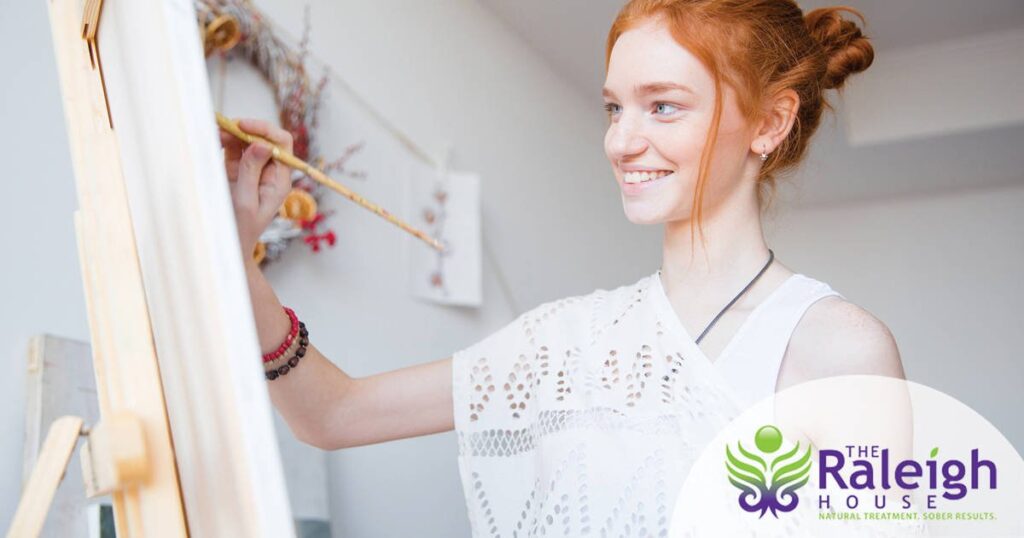
You’ve been through a lot.
You certainly didn’t see any of this coming or mean for it to happen. But addiction came anyway and got a hold on you in a way you simply cannot explain.
Now, it’s as if there aren’t enough words in the English language. You try to explain it and people try to understand it. But how can you possibly describe what has happened to you? You could talk all day long and never get there.
Think of art therapy as a way to put your feelings onto paper. Art therapy and addiction, it turns out, are a good team.
Art Therapy Directives for Addiction
Sitting down and painting or drawing can be therapeutic for anyone, but art therapy goes a few steps beyond that. There are many different directions a session can take. But they all are led by a therapist who helps you express yourself through art—and it does not matter if you are naturally artistic or not.
You might for example, work one day to create what’s called a visual journal, which includes both words and drawings. The next session you might simply be asked to draw how you feel. Sometimes, an exercise calls for a group to create a large drawing or painting together.
The Benefits of Art Therapy for Painkiller Addiction
One of the biggest benefits is finally feeling like you can express yourself. You can put emotions for which you have no words onto a canvas. Sometimes, this can even spark a breakthrough in which you discover something new—and important—about yourself.
But there are other benefits, too. The repetitive motions of painting or drawing in a quiet room are often found to be soothing. It also leaves a person little room to think about painkillers. That feeling of calm can begin to chip away at feelings of stress or anxiety.
Why do children like to draw? Many people think it’s a natural desire that we’re born with, but that we lose as we get older and busier and don’t want to “waste” time on pointless hobbies.
Which is nonsense of course. Ask 10 people—all non-addicts—if they ever experience stress, depression or anxiety. Art is for everyone.
About The Raleigh House
The Raleigh House is a residential treatment center located in Denver that brings a variety of tools to the fight against addiction, including art therapy. Fill out our form or contact us today to learn more about our painkiller addiction treatment program.




